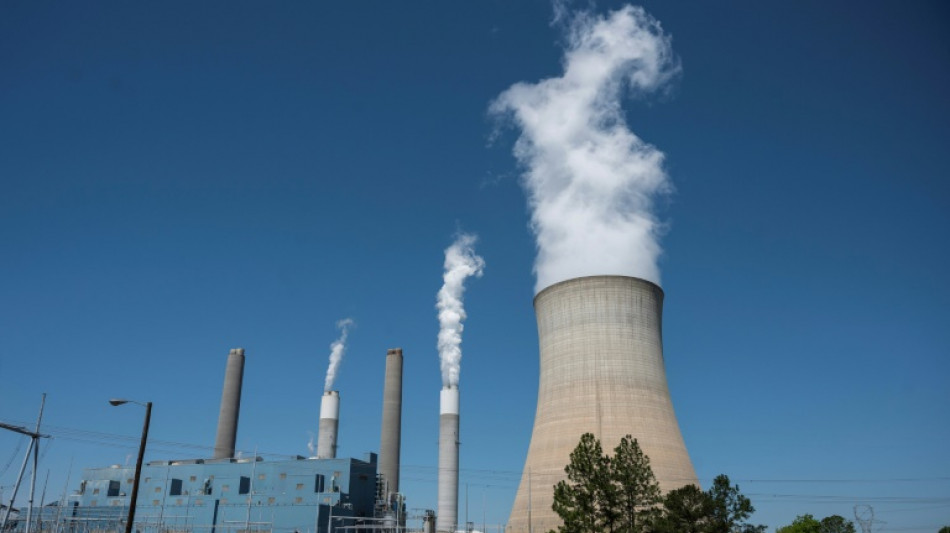
SCS
0.0200


US regulators announced plans Wednesday to reverse rules aimed at sharply reducing polluting emissions from coal and gas power plants, in the latest environmental rollback from President Donald Trump's climate skeptic administration.
"We choose to both protect the environment and grow the economy," Environmental Protection Agency (EPA) chief Lee Zeldin told a press conference.
Regulations set to be repealed include limitations on carbon dioxide emissions by power plants and a rule curbing release of hazardous air pollutants such as mercury.
The measures were meant to reduce greenhouse gas emissions by the United States, the world's top polluter, and to protect people living near power plants and exposed to elevated levels of air pollutants that can damage the nervous system and harm breathing.
Trump officials argue the regulations, enacted by prior Democratic administrations, are costly and rein in energy output at a time when the development of artificial intelligence is driving booming demand for electricity.
More than 200 health care professionals slammed the move as a "direct contradiction" of the EPA's mission to protect public health, warning in a letter that "it would lead to the biggest pollution increases in decades."
- A powerful polluter -
Zeldin argued Wednesday that under the new regulations "no power plant will be allowed to emit more than they do today."
The US power sector is already one of the world's top polluters, according to a recent report by the Institute for Policy Integrity, a nonpartisan think tank at New York University.
Were it considered a country, it would have ranked as the world's sixth-biggest emitter in 2022 and contributed five percent of total worldwide emissions from 1990-2022, the institute said in a May briefing on the topic.
"The best available evidence shows that each year of greenhouse gas emissions from US coal-fired and gas-fired power plants will contribute to climate damages responsible for thousands of US deaths and hundreds of billions in economic harms," the institute said in its report.
Regulations facing the axe include requirements for coal-fired power plants to capture CO2 emissions instead of releasing them into the atmosphere, using expensive capture and storage techniques that are still not widely in use.
- A change in course -
Since Trump -- a proponent of fossil fuels and climate change skeptic -- returned to power in late January, federal authorities have reversed course on climate policy.
In March, the EPA said it would undo dozens of environmental measures enacted during President Joe Biden's term in office, including those cutting vehicle emissions and drastically reducing the amount of carbon dioxide that coal-fired power plants can emit.
The proposed federal rules announced Wednesday will be subject to a period of public comment before being finalized. If they become law, they would most likely be challenged in court.
O.Yip--ThChM